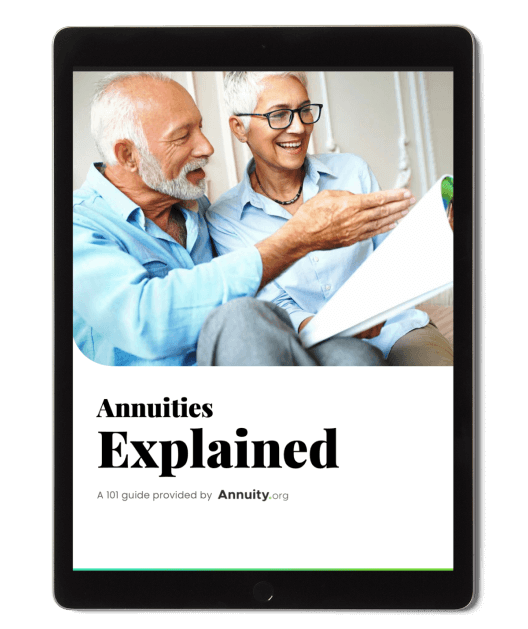IRA Overview
An individual retirement account (IRA) is a retirement savings plan that people can set up themselves outside a workplace. IRAs can serve as supplemental savings for people with a 401(k) or similar account or as a primary source of savings for workers who lack an employer plan.
IRA investors select an account custodian and their investment products. The account custodian can be a bank, brokerage firm or mutual fund company. Investors can make contributions up to the annual limit anytime from January 1 of each tax year until the tax filing deadline in April of the following year.
Key Facts About IRAs
- An IRA permits retirement savers to set aside up to $7,000 per year (plus a $1,000 catch-up contribution for people 50 and older).
- You’ll pay taxes on traditional IRA earnings on withdrawal, while Roth IRA earnings are tax-free for investors who have held the account for a minimum of 5 years and have reached the age of 59 ½.
- IRAs grow, in part, through compound interest, which is interest earned on previously earned interest on underlying investments. For example, if you have $1,000 in an IRA earning a 6% return, you will have $1,060 at the end of year one and $1,790.85 after 10 years, with no additional contributions.
IRA Terminology
The Internal Revenue Service (IRS) officially refers to IRAs as “individual retirement arrangements.” Like other retirement savings vehicles, IRAs hold and invest workers’ contributions while the owner enjoys tax benefits specific to each type of IRA.
IRA Investments
Common IRA investments are certificates of deposit (CDs), mutual funds, ETFs, stocks and bonds. Certain investments are not allowed, including collectibles and rental real estate.
Using an IRA to save for retirement can provide you with an additional opportunity to accumulate wealth on a tax-advantaged basis. However, it’s important to understand the nuance, as IRAs have more complexity than many realize. The issue I have seen most often is someone forgetting about the Roth IRA contribution income limit, or not knowing it exists in the first place, and contributing to a Roth even though they aren’t eligible.
IRA Regulations
The IRS imposes certain rules on IRA usage.
Eligibility
People who make contributions to an IRA must have earned income. Passive income, such as interest, dividends and rent, does not count. In addition, there is a maximum earnings limit for contributions to Roth IRAs. The income cap in 2024 is $161,000 for single tax filers and $240,000 for married couples filing jointly.
Contribution Limits
In 2024, the total contribution to traditional and Roth IRAs cannot exceed $7,000 if you are under age 50. If you are 50 or older, you can contribute up to $8,000. Contribution limits receive cost-of-living adjustments annually.
Workers can have a traditional IRA and a Roth IRA at the same time, but cannot exceed the annual contribution limit. For example, if you put $5,000 into a traditional IRA, you can only contribute up to $2,000 into a Roth IRA.

Is An Annuity Right For You?
Types of IRAs
Depending on your income and employment status, you can set up different types of IRAs. Each type offers different tax benefits but also comes with its own set of rules and limits.
Traditional IRAs
Interest on contributions to traditional IRAs accumulates tax-deferred until you make withdrawals in later life.
Contributions are fully tax deductible if you don’t have access to an employer-sponsored retirement plan. If you do, contributions are at least partially tax deductible up to a certain modified adjusted gross income (MAGI). For people with a MAGI of $87,000 or more for single filers and $143,000 or more for joint filers in 2024, no upfront tax deduction is allowed.
Roth IRAs
Roth IRA contributions are made with after-tax dollars and withdrawals are tax-free if they meet certain qualifications:
- The Roth IRA has been open for at least five years.
- The taxpayer has reached age 59 ½.
Roth IRA contributions are restricted for high earners. However, any earner can open a “backdoor” Roth IRA by contributing to a traditional IRA and converting it to a Roth IRA shortly thereafter. You will owe income taxes on the converted amount for that tax year.
Spousal IRAs
With a spousal IRA, one spouse can make retirement savings deposits for a non-working spouse, as long as the couple files a joint tax return and the working spouse has enough earned income to cover the contribution.
Each spouse can contribute up to the current limit. So $7,000 per person ($14,000 total) in 2023 if both participants are under age 50 and $8,000 per person ($16,000 total) if both are age 50 or above. Each spouse must hold a separate IRA account.
Rollover IRAs
People often use rollover IRAs when they cash out of a former employer’s tax-deferred plan, usually a 401(k) or 403(b) plan, and want to keep the money tax-deferred until retirement. Rollover IRAs allow the money to continue to grow tax-deferred and may offer a wider variety of investment choices than the limited selection in a former employer’s plan.
Small Business IRAs
People who are self-employed, either full-time or as a “side hustle,” or who are employed in a small business have two additional IRA savings options.
SEP
A simplified employee pension (SEP) plan, also known as a SEP-IRA, is an affordable, flexible and relatively simple option for small-business owners and solopreneurs.
Similar to a traditional IRA, SEP-IRAs allow significantly higher annual contributions and employer-to-employee deposits. If a small business owner contributes to employees’ SEP-IRAs, contributions are tax deductible. Required minimum distribution (RMD) rules apply.
SIMPLE
Savings Incentive Match Plans for Employees of Small Employers, or SIMPLE IRAs, are retirement savings plans for businesses with 100 or fewer employees within the calendar year. Eligibility is based on earnings and work history. Participants, including self-employed business owners, must earn at least $5,000 during any two previous years and during the current calendar year. Like traditional and SEP IRAs, RMD rules apply.

Learn About How Annuities Can Bolster Your Retirement Strategy
Tax Treatment of IRAs
Tax Deductions
You can contribute to an IRA regardless of participation in an employer-sponsored retirement savings plan.
Contributions to a traditional IRA may be tax deductible. As noted above, a tax deduction depends on your MAGI and whether you have a retirement plan through your employer. If you do not have an employer-sponsored plan, you are allowed to deduct contributions to a traditional IRA in full.
Roth IRA contributions are not tax-deductible, so there is no upfront income tax break.
Earnings
Traditional IRA earnings grow tax-deferred, so you do not pay taxes on plan contributions and earnings until you make a withdrawal.
Roth IRA earnings grow tax-free. You will owe no tax on investment earnings if you follow IRS rules for qualified withdrawals.
Withdrawals
If you own a traditional IRA, RMD withdrawals start on April 1 in the calendar year after you reach age 73, if born between 1951 and 1959, or 75, if born in 1960 or later.
You can total multiple traditional IRA account balances, including rollover IRAs, and take a distribution for all IRAs from only one account or any combination of accounts. People will often do this for portfolio rebalancing reasons.
When you make a withdrawal from a traditional IRA, the initial investment and earnings are taxed as ordinary income if IRA contributions were tax deductible when you made them.
Roth IRAs do not require withdrawals until after the account owner dies and the beneficiaries inherit the account assets. You can withdraw contributions and earnings with no tax and no penalty if the account has been open for at least five years and you are at least 59 ½ years old.
Early Withdrawals and Exemptions
The IRS assesses a 10% penalty if you withdraw IRA funds before age 59 ½. However, if an IRS exception applies, the owner can be exempt from the early distribution penalty.
For example, there is no penalty on some withdrawals for higher education, medical expenses or the purchase of a first home. In addition, under the SECURE Act, you can take an early distribution of up to $5,000 without penalty upon the birth or adoption of a child.

Get Your Free Guide to Annuities
IRAs and Annuities
There are two stages of IRA investing: accumulation and decumulation . Accumulation is making deposits and accruing interest, decumulation is making withdrawals.
It rarely makes sense to buy annuities for IRAs during the accumulation phase. An annuity is already tax-deferred, so placing it in a tax-deferred traditional IRA is akin to using two umbrellas in a rainstorm. In addition, annuity expenses will likely be higher than the expense ratios charged on investments such as index funds and ETFs.
In the decumulation phase, however, annuities may be advantageous to provide a stream of guaranteed monthly income for life to supplement Social Security. You can transfer IRA assets to an annuity through a direct funds transfer, or a rollover. You can also withdraw money from one qualified retirement plan and deposit it into another within a 60-day window.
Editor Bianca Dagostino contributed to this article.






